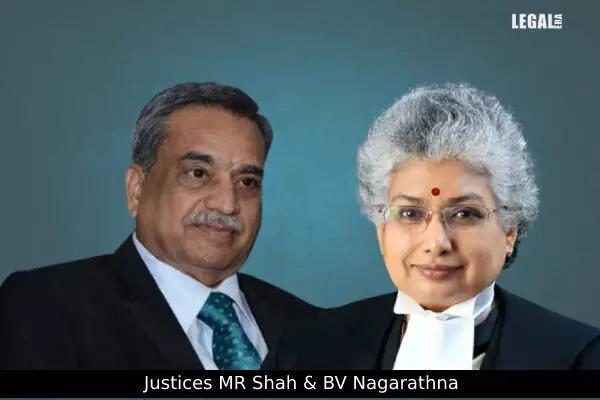- Home
- News
- Articles+
- Aerospace
- Artificial Intelligence
- Agriculture
- Alternate Dispute Resolution
- Arbitration & Mediation
- Banking and Finance
- Bankruptcy
- Book Review
- Bribery & Corruption
- Commercial Litigation
- Competition Law
- Conference Reports
- Consumer Products
- Contract
- Corporate Governance
- Corporate Law
- Covid-19
- Cryptocurrency
- Cybersecurity
- Data Protection
- Defence
- Digital Economy
- E-commerce
- Employment Law
- Energy and Natural Resources
- Entertainment and Sports Law
- Environmental Law
- Environmental, Social, and Governance
- Foreign Direct Investment
- Food and Beverage
- Gaming
- Health Care
- IBC Diaries
- In Focus
- Inclusion & Diversity
- Insurance Law
- Intellectual Property
- International Law
- IP & Tech Era
- Know the Law
- Labour Laws
- Law & Policy and Regulation
- Litigation
- Litigation Funding
- Manufacturing
- Mergers & Acquisitions
- NFTs
- Privacy
- Private Equity
- Project Finance
- Real Estate
- Risk and Compliance
- Student Corner
- Take On Board
- Tax
- Technology Media and Telecom
- Tributes
- Viewpoint
- Zoom In
- Law Firms
- In-House
- Rankings
- E-Magazine
- Legal Era TV
- Events
- Middle East
- Africa
- News
- Articles
- Aerospace
- Artificial Intelligence
- Agriculture
- Alternate Dispute Resolution
- Arbitration & Mediation
- Banking and Finance
- Bankruptcy
- Book Review
- Bribery & Corruption
- Commercial Litigation
- Competition Law
- Conference Reports
- Consumer Products
- Contract
- Corporate Governance
- Corporate Law
- Covid-19
- Cryptocurrency
- Cybersecurity
- Data Protection
- Defence
- Digital Economy
- E-commerce
- Employment Law
- Energy and Natural Resources
- Entertainment and Sports Law
- Environmental Law
- Environmental, Social, and Governance
- Foreign Direct Investment
- Food and Beverage
- Gaming
- Health Care
- IBC Diaries
- In Focus
- Inclusion & Diversity
- Insurance Law
- Intellectual Property
- International Law
- IP & Tech Era
- Know the Law
- Labour Laws
- Law & Policy and Regulation
- Litigation
- Litigation Funding
- Manufacturing
- Mergers & Acquisitions
- NFTs
- Privacy
- Private Equity
- Project Finance
- Real Estate
- Risk and Compliance
- Student Corner
- Take On Board
- Tax
- Technology Media and Telecom
- Tributes
- Viewpoint
- Zoom In
- Law Firms
- In-House
- Rankings
- E-Magazine
- Legal Era TV
- Events
- Middle East
- Africa
Copyright Infringement, a Cognizable and Non-bailable offence: Supreme Court of India

Copyright Infringement, a Cognizable and Non-bailable offence: Supreme Court of India
"The language of the provision in Part II of First Schedule is very clear and there is no ambiguity whatsoever."
The Supreme Court of India in a landmark judgment held that Copyright infringement under Section 63 is a cognizable and non-bailable offence.
The Delhi High Court earlier held that offences under Section 63 are non-cognizable, pursuant to which a writ petition was filed in the Supreme Court to challenge the aforesaid decision.
Imprisonment under Section 63 is for a period not less than six months which may extend to three years. Addressing this section along with Part II of Schedule 1 of CrPC, it was observed that imprisonment of less than three years with a fine is a non-cognizable offence, however, imprisonment of three years extending to seven years is a cognizable and non-bailable offence.
During the appeal, the appellant contended that the High Court committed a grave error in holding that offences under Section 63 of the Copyright Act are non-cognizable and that such offences do not fall under the purview of Part II of the first schedule.
Upon hearing the contentions of both parties, the two-judge bench of Justices MR Shah and BV Nagarathna noted that the maximum punishment under Section 63 is for 3 years, hence a magistrate may sentence an accused to an imprisonment of 3 years.
It was held that:
"Thus, for the offence under Section 63 of the Copyright Act, the punishment provided is imprisonment for a term which shall not be less than six months but which may extend to three years and with fine. Therefore, the maximum punishment which can be imposed would be three years. Therefore, the learned Magistrate may sentence the accused to three years also. In that view of the matter considering Part II of the First Schedule of the Cr.P.C., if the offence is punishable with imprisonment for three years and onwards but not more than seven years the offence is a cognizable offence. Only in a case where the offence is punishable for imprisonment for less than three years or with fine only the offence can be said to be non-cognizable"
The Court placed reliance on Rakesh Kumar Paul vs. the State of Assam and noted that:
"In view of the above clear position of law, the decision in the case of Rakesh Kumar Paul (supra) relied upon by learned counsel appearing on behalf of respondent no.2 shall not be applicable to the facts of the case on hand."
While allowing the present appeal the court made its final remarks:
"Consequently, the impugned judgment and order passed by the High Court taking a contrary view is hereby quashed and set aside and…… the offence under Sections 63 & 64 of the Copyright Act now shall be proceeded further in accordance with law and on its own merits treating the same as a cognizable and non-bailable offence"



